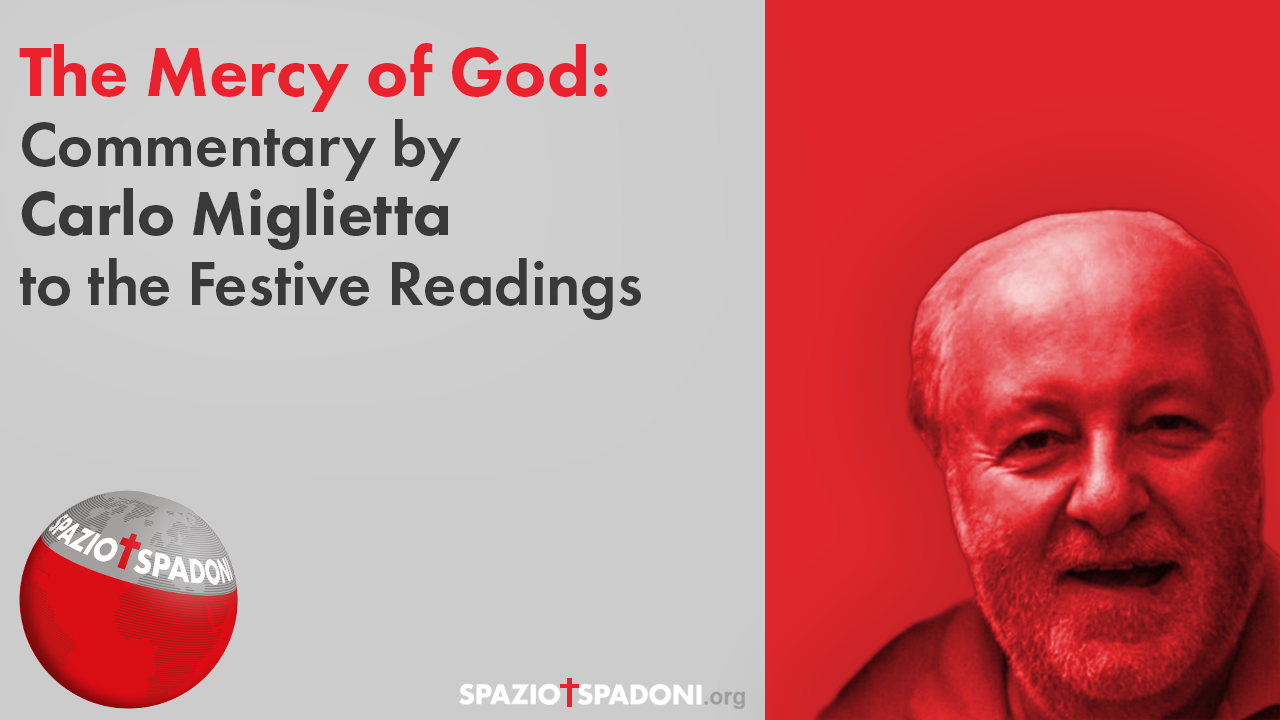
A church witness in love and poverty
Readings: Am 7:12-15; Eph 1:3-14; Mk 6:7-13
Today’s Gospel is the church’s “Magna Charta” if it is to remain faithful to its mandate: it is a text that certainly goes back to Jesus himself, and was part of the vademecum of preachers in the apostolic community. It expresses demands for strong radicalism in witnessing to the Kingdom, and closely recalls the content of the Beatitudes discourse (Lk 6:20-26; Mt 5:2-12), which Mark does not quote but exemplifies here. The Beatitudes “are a kind of self-portrait of Christ, they are an invitation to follow him and to commune with him” (Veritatis splendor, no. 16). Jesus is the model of the Beatitudes, and to his church he proposes nothing but the imitation of his life.
Jesus is a prophet (Mk 6:4, 15; 8:28) who does not live a solitary life, like the ancient prophets, like Amos in the First Reading (Am 7:12-15): he lives in community, and for community life he asked his own to leave home, family, wife (Mk 10:28-31). He sends his disciples two by two not only to give a valid testimony according to Jewish law (Deut. 19:15), but precisely to set an example of fraternal life. We are not called to a private faith, nor to an individual witness: the disciples are called as a community so that “they might be with him, and also to send them out to preach, and that they might have power to cast out demons” (Mk. 3:14), sent out to proclaim “the Word of truth, the Gospel of salvation,” as Paul states in the Second Reading (Eph. 1:3-14).
This is why in the Gospel and Acts we often see “famous” pairs of disciples presented, signs of a practice of sharing life and proclamation: Peter and John (Lk 22:8; Jn 20:3-10; Acts 3:1; 4:1), John and Andrew (Jn 1:35), Cleopas and the other disciple (Lk 24:13. 17), Barnabas and Paul (Acts 11:30; 13:2; 14:14), Judas and Silas (Acts 15:22), Barnabas and Mark (Acts 15:39), Paul and Silas (Acts 15:40)… It is the church as such that is sent to the world to preach conversion, to cast out demons, to heal the sick (Mk 6:13). Announcing the One who is Love (1 Jn 4:8), the church must first of all be a visible sign of him: “By this everyone will know that you are my disciples, if you have love for one another” (Jn 13:35). Do we give the world this sign? We are recognized as His own by the intensity of love that reigns in the church, by our washing one another’s feet (Jn. 13:14), by our welcoming one another, forgiving one another, honoring one another, living among one another that charity that “is patient, is benign . .., is not envious…, is not boastful, is not puffed up, is not disrespectful, does not seek its own interest, is not angry, does not take account of evil received, does not rejoice in injustice…, which all covers, all believes, all hopes, all endures” (1 Cor. 13:4-7)?
In addition to common life in agape, the call for the church is to radical poverty (Mark 6:8-11). The essence of “being with him” (Mk 3:14) is to be poor like him (Lk 8:58): faith is to place our security in God alone, it is to rely on him alone, like the birds of the air and the lilies of the field (Mt 6:25-35), it is to live by him alone. Poverty is a true and indispensable sacrament, that is, an effective sign of faith in God. Without poverty there is no faith, except in words. The church will be able to truly witness Christ to the world only when it can say, like Peter and John to the cripple in the temple, “Look toward us… I possess neither gold nor silver, but what I have I give to you: in the name of Jesus Christ, the Nazarene, walk!” (Acts 3:4-6): if the two Apostles had riches, they would have given him alms, not the miracle… The disciples will not even have to take bread with them (Mk 6:8): for they have “with them in the boat the one bread” (Mk 8:14), Jesus Christ Himself! To the believer, God is enough: the mission is to witness this with one’s life.
